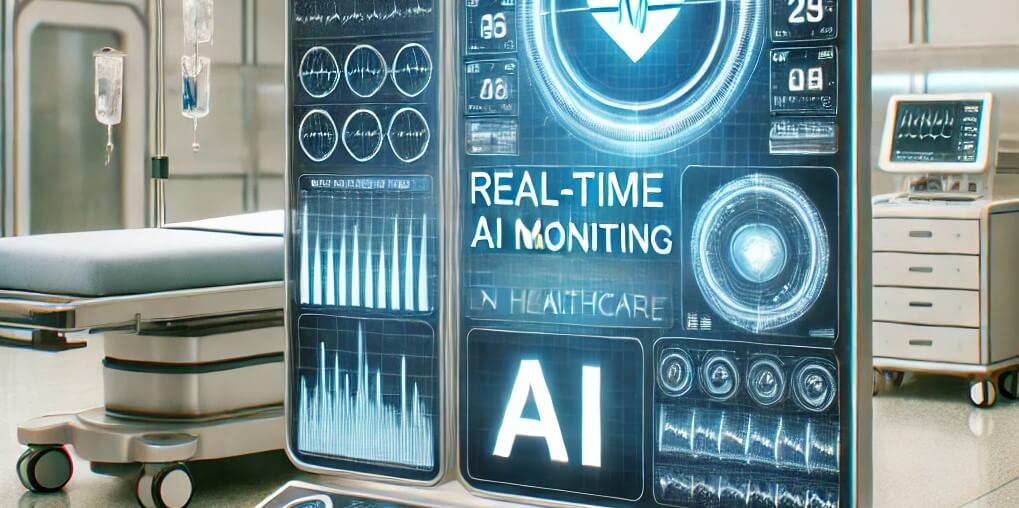As artificial intelligence (AI) continues to transform healthcare, concerns over the long-term performance of AI-integrated medical devices have gained significant attention. The U.S. Advanced Research Projects Agency for Health (ARPA-H) has launched a new initiative, the Performance and Reliability Evaluation for Continuous Modifications and Useability of Artificial Intelligence (PRECISE-AI) program, to address the issue of AI degradation in medical tools. This four-year initiative aims to develop tools that monitor and correct AI performance in clinical settings, ensuring that AI-driven medical devices maintain accuracy over time.
AI in Medical Devices: A Growing Concern

To date, the U.S. Food and Drug Administration (FDA) has authorized over 950 medical devices featuring integrated AI or machine learning (ML) technologies. These devices are used in various critical healthcare applications, from diagnostic tools to treatment recommendations. However, evidence suggests that the performance of these AI systems can degrade over time, particularly as they encounter new data or shifts in clinical practices. Such degradation can lead to misdiagnoses or other errors before physicians notice the problem.
Currently, there are no requirements for regular testing or updates of AI models in clinical use, leaving their accuracy largely unchecked after initial deployment. According to ARPA-H, the only safeguard against AI degradation is “clinical intuition” from physicians using the technology. However, this method is described as “unreliable and highly variable,” meaning that AI models may already be causing errors before any issues are identified.
The PRECISE-AI Program: A Solution to AI Degradation
In response to these concerns, ARPA-H has launched the PRECISE-AI program, which aims to create new tools for continuously monitoring and adjusting the performance of clinical AI models. The program’s overarching goal is to ensure that AI systems in healthcare can self-diagnose performance issues and correct them without requiring human oversight, thereby reducing the burden on medical professionals.
According to ARPA-H, the tools developed under PRECISE-AI will:
- Monitor AI model performance in real-time to detect degradation.
- Automatically adjust AI models to compensate for any performance issues.
- Communicate actionable insights about the sources of degradation, allowing healthcare providers to better understand why and how an AI system’s accuracy has declined.
This automated oversight could prove invaluable in medical environments, where lives depend on the reliability of diagnostic and treatment tools. By providing real-time corrections, these tools aim to prevent misdiagnoses before they occur, creating a safer, more reliable healthcare system.
Key Focus Areas of the PRECISE-AI Program

The four-year PRECISE-AI program will be divided into two phases:
- Prototyping Phase (First Two Years): Participants will focus on developing and refining their approaches for monitoring AI performance and mitigating degradation. This phase will involve creating innovative algorithms, communication strategies, and monitoring tools.
- Testing and Commercialization Phase (Final Two Years): These prototypes will be tested in real-world clinical settings to assess their effectiveness. The goal is to integrate the best solutions into commercial packages that can be deployed widely across the healthcare industry.
The program will also explore several technical areas, including:
- Continuous performance monitoring.
- Communicating AI model uncertainty.
- Identifying sources of AI degradation.
- Implementing automated performance corrections.
The Role of ARPA-H in Healthcare Innovation
The PRECISE-AI program is one of the first major initiatives led by ARPA-H, a new agency founded by the Biden administration in 2022. Modeled on the Defense Advanced Research Projects Agency (DARPA), ARPA-H was established to tackle ambitious medical and health challenges that traditional research or commercial endeavors may not address. Its focus is on pioneering projects that push the boundaries of current medical technologies, and the PRECISE-AI program is an early test of this mission.
By focusing on AI performance in medical devices, ARPA-H aims to ensure that healthcare systems remain reliable and adaptive in the face of rapidly evolving AI technologies. The success of the PRECISE-AI program could lead to breakthroughs in how AI models are managed in clinical environments, reducing the risks associated with AI degradation and enhancing the overall safety of AI-driven healthcare solutions.
Looking Ahead: Implications for the Healthcare Industry

From my perspective, the PRECISE-AI program represents a critical step toward addressing one of the most pressing concerns in AI-driven healthcare: the long-term reliability of AI models. As the use of AI in medical devices grows, ensuring that these tools perform consistently is vital to maintaining patient safety and trust in emerging technologies.
If successful, the PRECISE-AI initiative could set new standards for AI model management in healthcare, offering a proactive solution to AI degradation that minimizes risks for both patients and healthcare providers. Moreover, the program’s focus on automating performance adjustments without human intervention could reduce the burden on clinicians, allowing them to focus on patient care rather than monitoring technology.
In conclusion, the launch of the PRECISE-AI program is a significant step toward safeguarding the future of AI in healthcare. As AI continues to evolve, initiatives like this will be essential to ensuring that technology not only enhances medical practice but also remains dependable in the long run.






